Lynne Ramsay is a Scottish writer, editor, cinematographer, and director who has made a handful of short films and four feature films. What sets her apart from other filmmakers is simply that all of her films are amazing. This is my opinion, of course, but… it’s true.
There are commonalities found in both Ramsay’s shorts and features:
- Plots that deal with childhood
- Very little dialogue, almost none in some cases
- Stunning visuals (Ramsay is a photographer and you can tell)
- Use of music to drive the tone
- Themes of death, grief, loneliness, and guilt
Honestly, one could write a dissertation on the nuances within any one of Ramsay’s movies, but I will spare you a 100-page document and instead give brief summaries of each film, which will not do them justice.
Ratcatcher (1999)
Ratcatcher takes place in working-class Glasgow in the 1970s during a sanitation worker strike. With heartbreaking music and muted colors, we follow James (William Eadie), a young boy living in tenement housing with his family. After the accidental death of a neighbor, James is living with the guilt of the experience, and so much more. James is a representation of being a tween, coming from a poor and neglectful family, and navigating life. This might sound mundane or boring, but it is so quietly brilliant and beautiful. James doesn’t always make the right decisions, nor do his peers or parents, but he is doing the best he can. Ramsay grew up in a similar setting to this family and is painting gender and socioeconomic issues of the time through this White family.
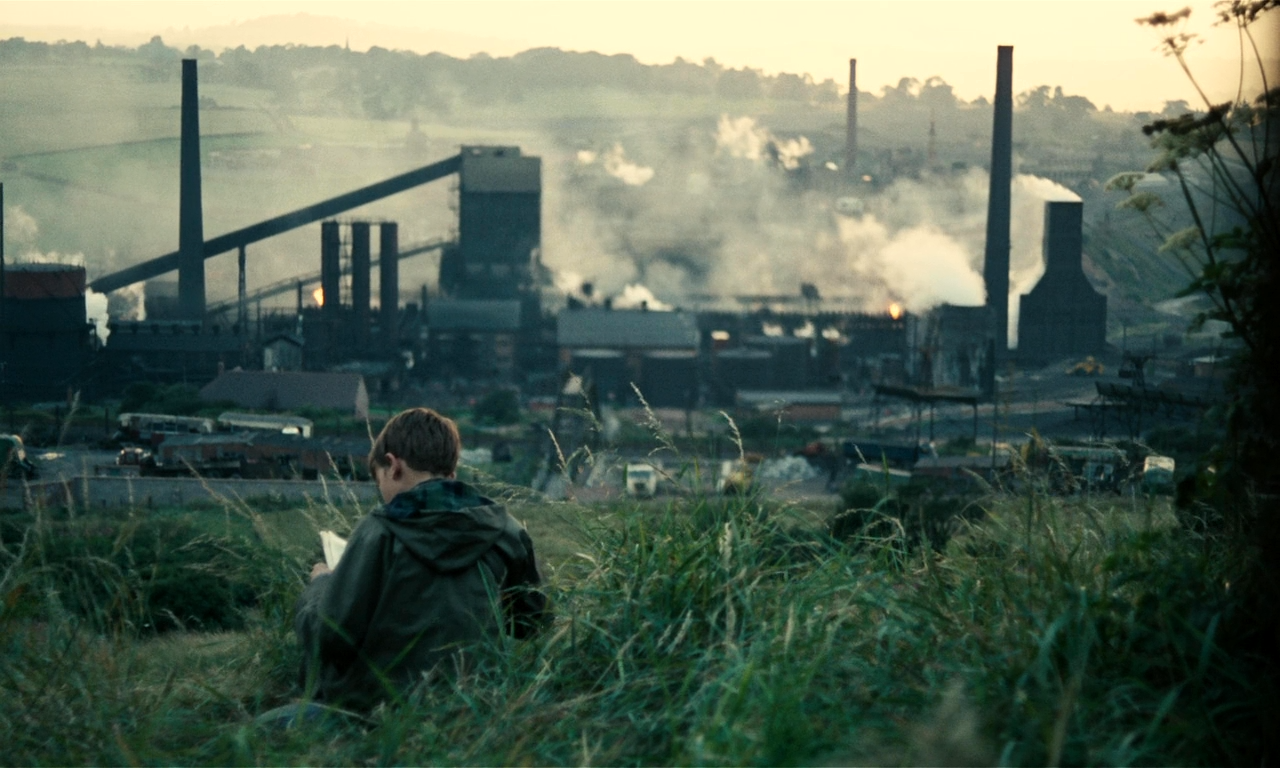
Surrounded by literal garbage and rats (due to the garbage workers strike), watching this boy dream, not of riches and toys, just of a clean, bright home is so sweet. As with all of Ramsay’s films, the audience is left to decide the fate of the characters, and their motivations. James is more sympathetic than other characters in Ramsay’s films, but I think this has more to do with his age. As a 12-year-old protagonist, he makes mistakes, but not with the understanding of his actions. He just wants to belong to something. This is one of my top five favorite films of all time.

Ratcatcher is not currently available on any streaming services.
Morvern Callar (2002)
Morvern Callar is the title character in this film (based on a novel by Alan Warner), spectacularly played by one of the most underrated actors of our time, Samantha Morton. Ramsay’s signature style of non-dialogue, intense tone, and wonderful music are present here, but the protagonist is much different. Morvern is not a good person. She steals, lies, cheats, etc. Morvern is frighteningly cold but so cool. This film is lead by the mixtape created by Morvern’s boyfriend, which we experience in the most intimate way: through her headphones.
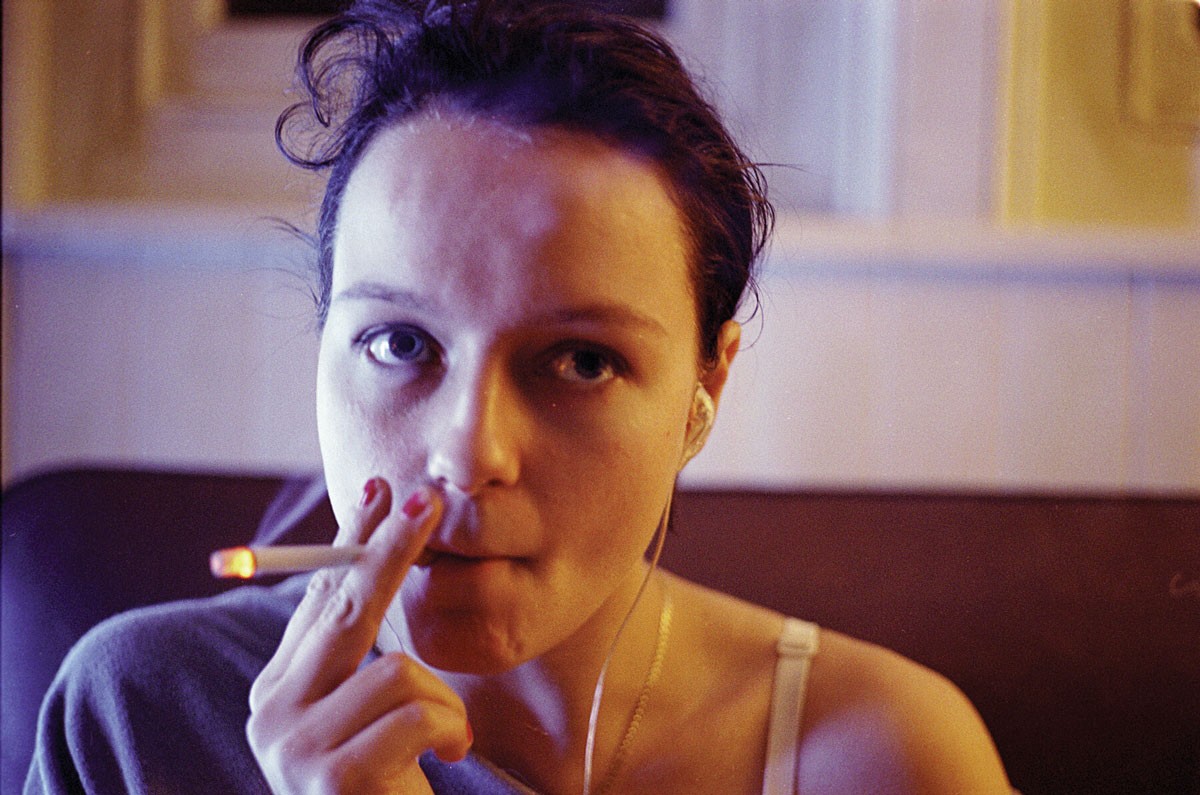
Ramsay does not give us the character’s motivation or direction, and I am not sure if the characters even know. Everyone handles grief differently, and I guess this story is one way to handle it? Almost every review I read about this film mentioned that the viewer had been thinking about Morvern and the film long after they watched it. The mesmerizing art that Ramsay gives to us is incomparable. Every story is not cut and dry, does not have a clear beginning and ending, and this film gives us a short glimpse into a complicated life. It mostly takes place in Spain, a complete contrast to the bleakness of Scotland, with Morvern and her friend Lanna on a holiday. Morvern Callar is a road movie, a musical, a story of grief and loss and rebirth. There is also a wink and smile at the end when Morvern hears from some publishers, but I won’t spoil it. Somehow Ramsay, once again, creates an action-less story that is so simple, but one of the most layered and complex films ever made.
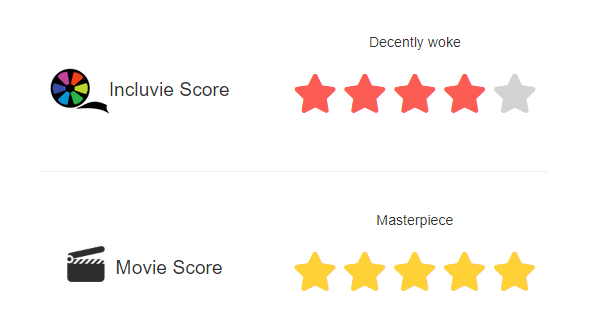
Morvern Callar is available on Amazon Prime.
We Need to Talk about Kevin (2011)
We meet Tilda Swinton, as Eva Khatchadourian, living alone in a run-down house while she is taunted and harassed by community members. Eva is plagued with flashbacks, some to happier times and some really disturbing “red flag” memories. The images, like most of Ramsay’s work, are disturbing, heartbreaking, terrifying, and beautifully made.
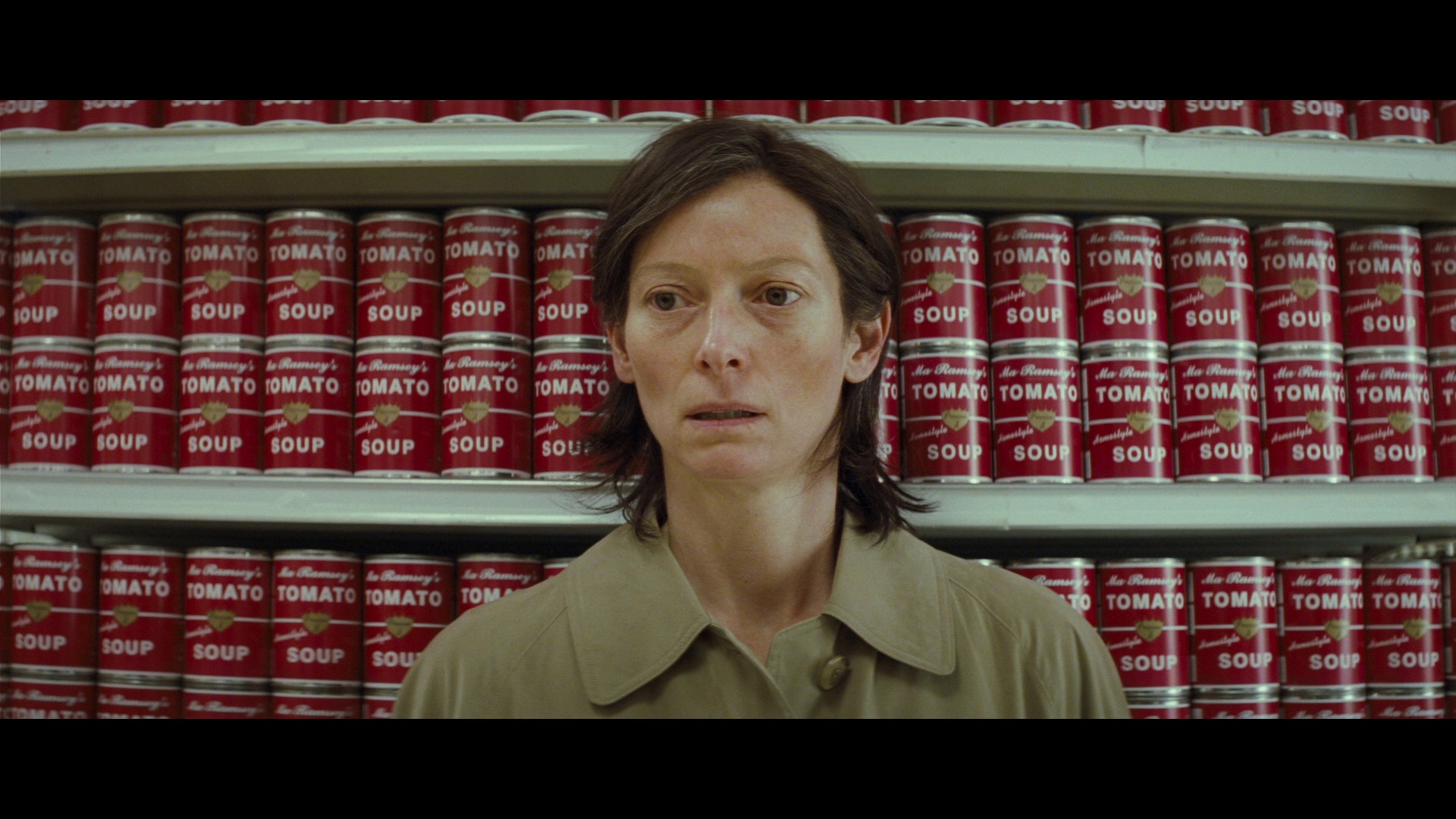
The film, based on a novel by Lionel Shriver, features Ramsay’s signature lack of dialogue or exposition narration. Instead, most of the appeal of this film is carried by the amazing actors, the perfect soundtrack, and the suspenseful cinematography. The scenes are painfully long but detailed and important. Small details like Eva as a first-time mother, unable to get baby Kevin to stop crying or to show affection, while John C. Reilly, the lovable father, Franklin, is a doting and patient dad. This is the story of an imperfect mother, trauma, and the court of public opinion. This film centers around a scene we sadly all know too well — a school shooting, only this one was with a bow-and-arrow instead of a gun. Eva and Franklin’s son, Kevin (Ezra Miller as the teen and Jasper Newell as the child), is the shooter. While the film lacks racial diversity, it is accurate in its representation of mass shootings, which are usually committed by White men/boys. Again, Ramsay focuses on young people, but also on flawed, complex women.
Eva is not a great mother, nor is she even a good person in many cases. Kevin is scary, even as a young kid. It is clear that something about him just is not right. Is Kevin’s monstrous behavior the result of nature, nurture, or both? Does Eva feel guilty? Embarrassed? Ashamed? Self-pity? Regret? Ramsay doesn’t feed us these answers — she leaves the audience to decide on her own.
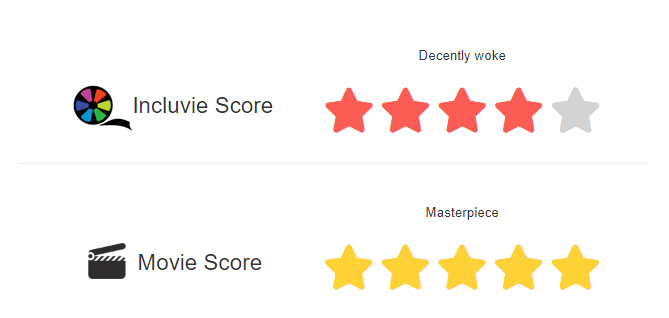
We Need to Talk About Kevin is available on Hulu and Amazon Prime.
You Were Never Really Here (2017)
Is Taxi Driver the story of a modern-day Robin Hood, a vigilante, or a lost psychopath? You will be asking the same questions of Joe (played by Joaquin Phoenix) in You Were Never Really Here. Ramsay’s most recent feature film is about a veteran (with PTSD from the military and his childhood) who becomes a hired hitman of sorts, a saver of runaway girls who are usually forced into sex work. Again, the haunting soundtrack and incredible performances lead us on an emotional and disturbing journey where any dialogue is rare. The casting is perfect; the deep pain portrayed in Joe’s eyes is overwhelming. The film is dark — emotionally and visually. We never leave Joe, but we see him from all angles and rarely hear him speak. Ramsay’s themes of guilt, grief, loneliness, and death are all evident in the story, possibly more clearly examined than any other of Ramsay’s films. Joe tries so hard throughout the film to end his life, but he can never quite get there. Ramsay slowly uncovers some of Joe’s demons through very quick flashbacks, although the flashbacks do not provide us with any explanation or motivation in truly understanding Joe, as is Ramsay’s style.
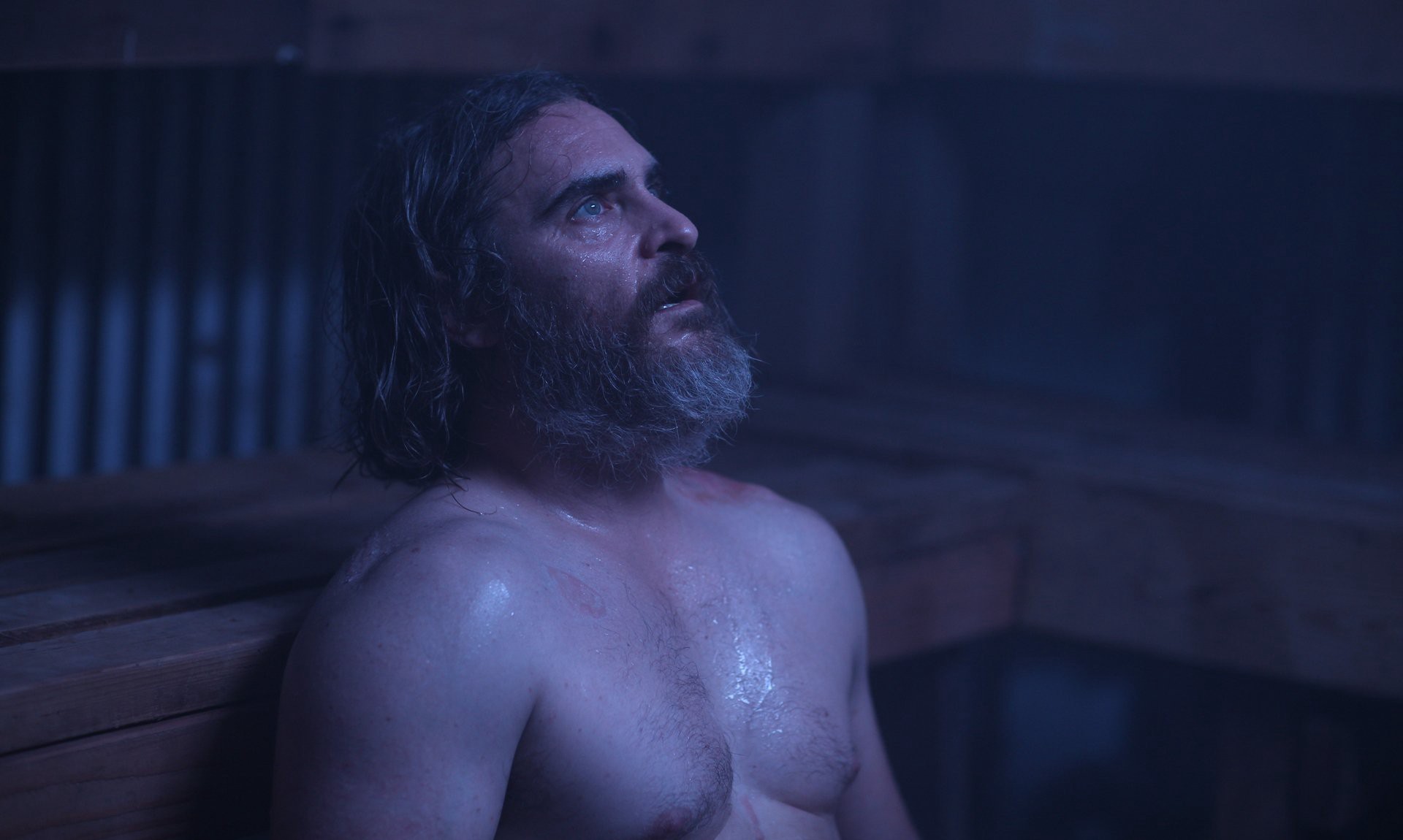
At the Cannes Film Festival, Ramsay would not do a Q&A with the audience after this film’s premiere because she doesn’t like to spoon-feed the audience anything. While Phoenix, an adult, White man, is the center of the film, it is still a film about children and childhood. Can you save yourself from your own childhood by saving other children? While You Were Never Really Here is more action-packed and suspenseful than the previous three feature films, it doesn’t lack the haunting layers and brutal uncertainty that we expect from Ramsay. And, holy shit, this movie is brutal and exquisite.

You Were Never Really Here is available on Amazon Prime.
Where is Lynne Ramsay?
While several projects started and stopped for various creative and financial reasons in the past few years, Ramsay has not released a feature film since 2017. And we miss her.
In a 2011 interview with Sean O’Hagan for The Guardian, Ramsay explains some of the hurdles of Hollywood:
“Well, the film industry is completely sexist and completely class-biased. It’s not something I get on the ground level, it’s more from financiers and producers and distributors. It’s a way of dealing with you that is essentially patronising: I know better than you.”
I hate to think of all the Lynne Ramsays who have the potential to create beautiful art like these films are stifled by the industry. But, I am impressed by Ramsay’s refusal to allow the powers-that-be to dictate her filmmaking. I can’t wait to see what she produces next because I know it will be all her own.
(This article was originally published by Sarah Erskine on Medium.)

Comments